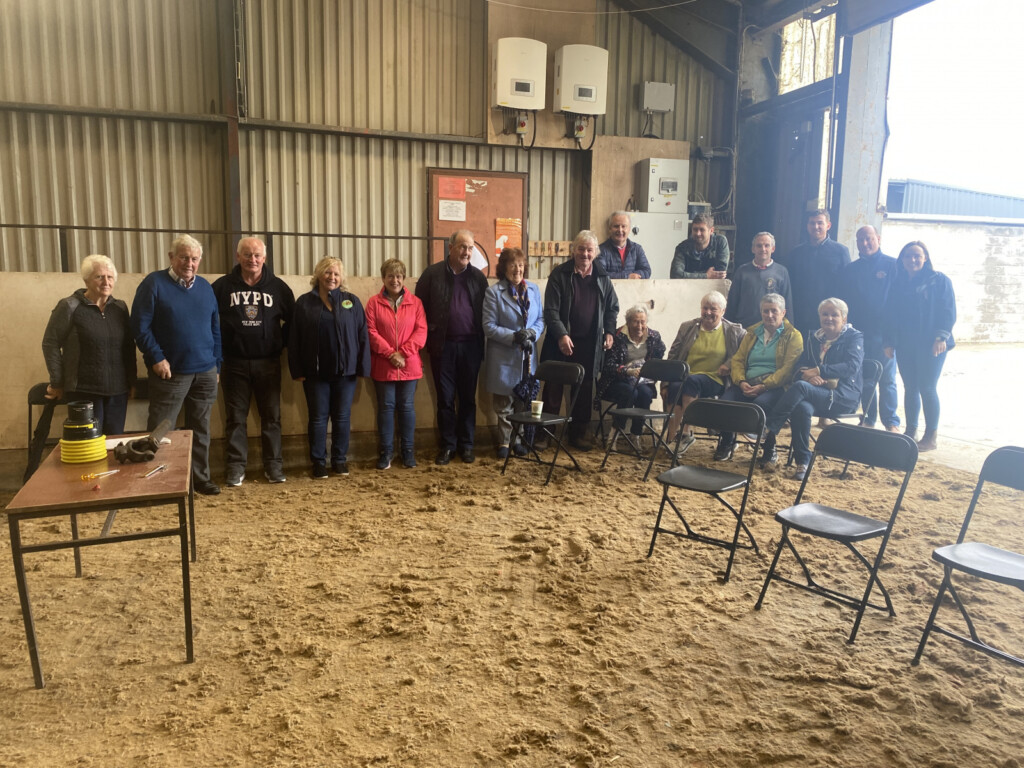With Christmas upon us and harsh conditions having already hit, it is vital that farm families prioritise farm safety, health and wellbeing, according to Niamh Nolan, project manager, Farmers4Safety – Managing Risk Together EIP-AGRI Project.
“Looking back on the year in relation to farm safety, health and wellbeing, there have been 12 farm fatalities so far this year. This is 12 too many and has left many communities, families and friends devastated in trying to deal with the loss of their loved one,” she said.
“It’s important that we look out for each other when carrying out jobs on our farms and ask for help and assistance if needed.
“There have been many publications, workshops and talks rolled out this year from different farming bodies/organisations, EIP-AGRI projects and the Department of Agriculture, Food and the Marine to help prioritise farm safety, health and wellbeing. All of these resources can be accessed on the relevant websites.”
She is also advising farm families to take a look at the ‘Be Winter Ready’ campaign which gives advice and tips on staying safe this Christmas that is relevant to the home, community, sector, organisation or body.
John Murphy, Cork mentor with the project, advised farmers to prepare for the presence of children during the Christmas holidays.
“Households up and down the country will be visiting each other. Chances are there will be children in our houses who want to see the animals or get a spin on a tractor or quad bike,” he said.
“There are a few steps that we can all take to ensure everyone is safe and we can all have a joyful Christmas rather than a tragic one. Before any visit with kids, plan ahead where you are going to take them and identify and remove as many hazards as you can.

“If possible, make sure there is a physical barrier between the house and the farmyard so children can’t wander into the farmyard by themselves,” he added.
“Only allow children into the farmyard when they are supervised by an adult. Pick a quiet time rather than busy periods when there is a lot of work going on.”
John explained that only children over the age of seven should be allowed to take a spin in a tractor with an adult and farmers urged urged to ensure they have their own seat with a dedicated seat belt.
The advice is to avoid giving rides to children on an ATV because passengers can compromise the driver’s ability to control the vehicle safely.
“Make sure there is always a solid barrier between children and livestock, and never allow them to enter pens,” John continued.
“Check that all slurry tank access points are tightly secured. This is not an exhaustive list of safety measures that can be taken, but it is a good start to ensure a happy Christmas for everyone.”
Farm safety
Some tips to prioritise farm safety from the project are:
- Bring your mobile phone when you are out completing jobs on the farm or on other trips;
- Check your tractor/quad/vehicles/machinery before use (anti-freeze in the cooling system);
- Assess the yard for risks e.g., slip/trip hazards, grit the yard after freezing conditions;
- Have help arranged with a buddy for difficult or risky tasks;
- Ensure adequate lighting in your yard and sheds;
- Have a First Aid kit at the ready and have emergency phone numbers checked, including your Eircode, local authorities, ESB, and local doctor.
“At this time of the year, our mind turns towards our loved ones, especially children and old people, the people who we value the most,” said Mary Oakley, Tipperary mentor.

“This Christmas why not take the opportunity to consider the risks on the farm for your parents, for your children and for yourself.
“In the case of the elderly and children, empower them to recognise the risks, show them the risk assessment document, ask for their help and input in identifying risks, and include them in your farm safety plan for 2023. Make them your buddies as you prioritise farm safety.
“As we look forward to the year ahead, it’s important to think to ourselves how we can become safer on our farms and help reduce the number of farm fatalities,” she added.
Mary pointed out that we are all accustomed to our own farmyards and it is important that we identify the risks and hazards within our farm and make safer changes that will influence our own safety, health and wellbeing and others when they work, live and visit the farm.
